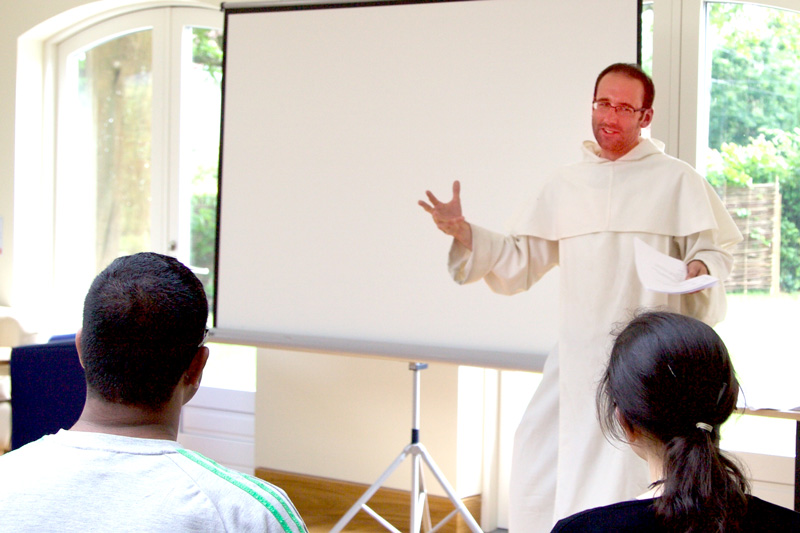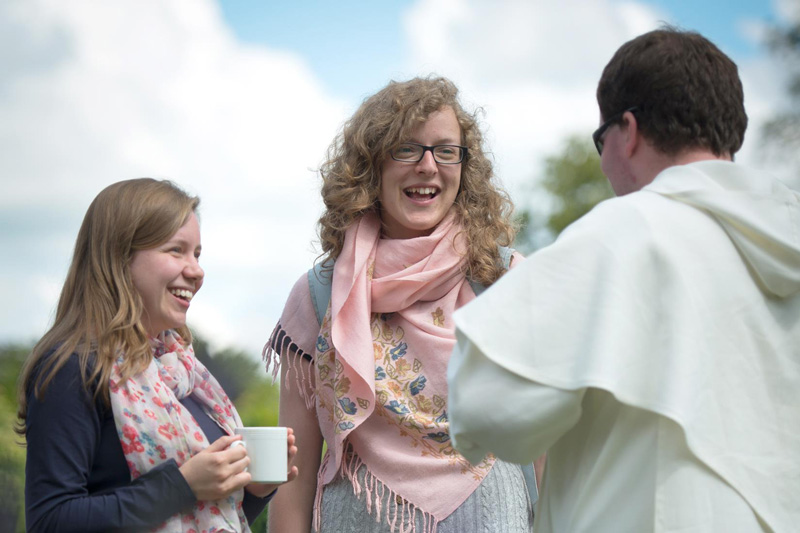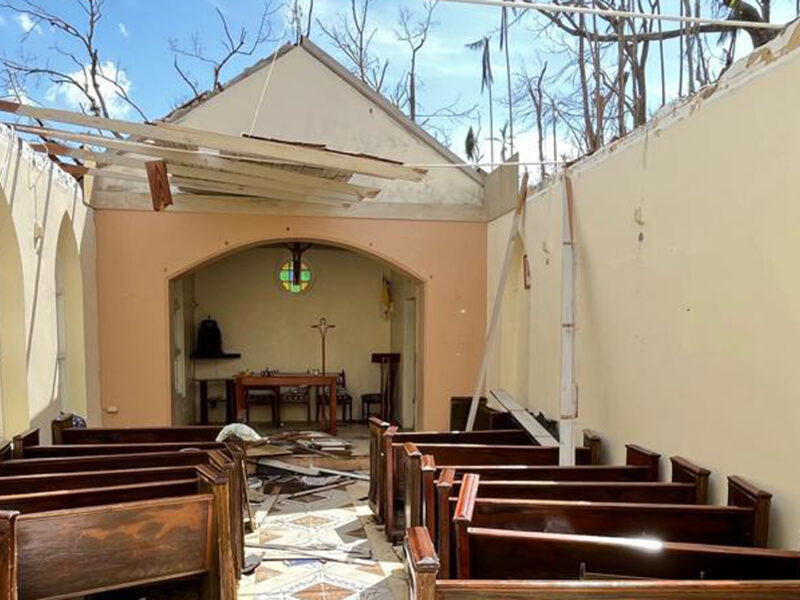
Called to Witness: Discovering our Vocation
 Fr Nicholas Crowe OP reflects on the vocation of all the baptised.
Fr Nicholas Crowe OP reflects on the vocation of all the baptised.
Everyone has a vocation: this has been my constant refrain to anyone who will listen up and down the country over the last two years. Indeed, it has also been the constant refrain of many other vocation promoters as part of a campaign led by the Bishops’ Conference of England and Wales to move the wider Church away from a view of vocation as something applicable only to a chosen few, and towards a holistic and three dimensional vision of vocation as the organising principle of the Christian life.
Called to Follow Jesus
Properly speaking, when we say that someone ‘has a vocation’ we mean first of all that they are called to a life of discipleship and holiness. Primarily, our vocation is a call to be a follower of Jesus, it is a summons to learn from him in order to live like him, it is an invitation to enjoy God’s friendship in this life and eternal happiness with God in the next. This primary dimension of our vocation is universal to all the baptised. When we speak of our vocation, then, we mean first of all our baptismal vocation to be disciples of Christ, we mean his summons to prepare the way of the Lord in our hearts, in our minds and in our world.
Now even a cursory reading of the New Testament is enough to make clear that embracing our baptismal vocation is a very concrete affair. Following Jesus does not take place in an abstract realm of ideas, or terminate in a purely intellectual pursuit. It is grounded in very particular contexts and situations, and it is embedded in a personalized web of human relationships. Once we have embraced our baptismal vocation, then, and set out as Disciples of Christ, it obviously becomes important that we root ourselves in relationships and contexts that facilitate rather than thwart the life of love of God and love of neighbour that Jesus asks of us and the Holy Spirit makes possible for us. This brings us to the second dimension of our understanding of what it means to have a vocation: what is usually described as our ‘state in life’.
Our Specific Vocation
This second dimension of our vocation usually refers to a commitment to anchor our life of discipleship in one of four broad modes of relating to God and neighbour: the priesthood, the religious life (that is, the life of a monk, nun, friar, sister, or brother), the married life, or a single lay life that is intentionally offered up to God as a gift of love. The key point here is that these ‘states’ or ‘environments’ are chosen out of love: we embrace the priesthood, the religious life, marriage, or a single lay life not out of fear, not with selfish motives, but because we hope that this will be the context that best facilitates our journey of discipleship, the environment that helps us to love God and neighbour most powerfully and most profoundly.
When we speak about our vocation, then, we are speaking primarily about our baptismal call to discipleship and secondarily about the context through which that pilgrimage with Jesus to the Kingdom of Heaven takes place.
Day-to-day Discipleship
The third and final dimension of vocation gets even more specific. It refers to the day-to-day reality of living as a disciple here and now, striving for God’s will to be done in my life today as it is in Heaven. This third dimension of vocation embraces both our personal and professional lives, as well as our natural and supernatural gifts. It is focused on our response to the call of Christ to build up his Kingdom in this time and in this place. This third dimension of our vocation is the most fluid and so it requires a daily attentiveness to the Word of God in prayer.
The world does not stand still, and neither do we. As we grow older we find that there are seasons to our life of discipleship, and as we find ourselves in new situations the command of love makes new demands on us. This means that we can never think of our vocation as being something static: it does not matter if we are at the end of our journey with Christ or at the beginning, each day we must open our ears as disciples and resist the hardness of heart that deflects God’s call.

The Dominican Vocation
Against this backdrop, the contours of a specifically Dominican vocation become more apparent. To put it very simply, the Dominican follows Christ the preacher and Christ the teacher along the path blazed for us by St Dominic. For us, the universal call to discipleship that is common to all the baptised and the primary meaning of vocation is specified by the pattern of natural and supernatural gifts bestowed upon us by God which equip us to extend the preaching and teaching mission of Christ and his Apostles into the present moment.
For the friars, the sisters, and the nuns, this journey of discipleship is facilitated by the second dimension of our vocation: our religious life. The evangelical counsels, plus our commitment to prayer, study and a common life are meant to carve out space in our lives for contemplation and the handing on of the fruits of that contemplation to others. For the lay Dominicans, this same apostolic education for evangelisation takes place in the context of married life or a single lay life.
The third dimension of our vocation encompasses the wide variety of ways in which we witness to the Resurrection and proclaim the Good News of our Lord Jesus Christ. It is the day-to-day labour of preaching, in all its varied forms. It requires a sensitivity to the prompting of the Spirit, an alertness to the signs of the times, and a passion for the salvation of souls.
Fr Nicholas Crowe is Director and Promoter of Vocations for the English Dominicans. Resident at St Dominic’s Priory, London, he visits universities, schools, and parishes across the country. If you would like to discuss your vocation, please email Fr Nicholas.
How you can support Dominican vocations
The formation of the friars is entirely funded by the Training Fund of the Province of England. We are extremely grateful to all those who have donated generously to it in recent years, and further gifts are welcome.
We recently received an anonymous donation to mark the donor’s close friendship with Zafar Iqbal OP. We welcome memorial gifts of this nature – please contact us if you would like to make a similar gift, or donate online.
Please pray for the novices and brothers, for those who form them for ministry, and for vocations to the Dominican family.


